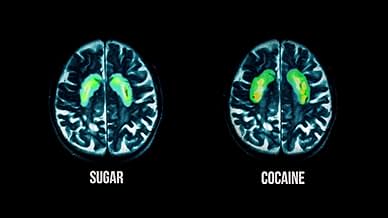IMDb-BEWERTUNG
7,7/10
12.565
IHRE BEWERTUNG
Füge eine Handlung in deiner Sprache hinzuAn examination of America's obesity epidemic and the food industry's role in aggravating it.An examination of America's obesity epidemic and the food industry's role in aggravating it.An examination of America's obesity epidemic and the food industry's role in aggravating it.
- Regie
- Drehbuch
- Hauptbesetzung
- Auszeichnungen
- 3 Nominierungen insgesamt
Bill Clinton
- Self
- (as President Bill Clinton)
Michael Bloomberg
- Self
- (as Mayor Michael Bloomberg)
Mark Hyman
- Self
- (as Mark Hyman M.D.)
Tom Harkin
- Self
- (as Senator Tom Harkin)
Empfohlene Bewertungen
10rannynm
Eye-opening! I love the way this film's message comes through in an intellectual and impactful way. This documentary tackles the issue of childhood obesity and follows the lives of kids across America. In between, we learn that everything we know about losing weight is wrong and that the content in our food products is a lie.
I want you to find any processed food product and look on the nutrition label. You will find that sugar does not have a percent daily value. All the other ingredients do. Why not sugar? Because, "80% out of the 600,000 food products sold in the country have added sugar and since 1995 the government has provided over eight billion dollars in subsides for corn based sweeteners." Revealing these surprising facts was no easy feat however, director Stephanie Soechtig brilliantly shows the struggle that all kids go through as they battle obesity. The half a dozen kids they follow through their physical and, more important, emotional pain - are amazing. We see them living different lives but dealing with the same obstacles. Their everyday struggles prove this film's theory. Many doctors, authors and, even presidents, are interviewed. Each has their say in the issue and all have wise words. The animation showing graphs, pie charts and ratings are clever. Mixed in with the informative, stock footage of news and food commercials showing the history of obesity, make this an exciting and insightful film.
I was blown away by Maggie Valentine's story. This beautiful girl is going through the heartache of trying to control her weight. She works everyday to release weight but, in the end, it's futile. To see her tears, frustration and sadness is unbearable to watch.
The message in this film is, "Change the food industry!" Being overweight is not entirely a personal fault. Our processed foods are a huge cause of the obesity rate in America. Food companies continue to grow bigger and stronger. Thus, we need to change the way we eat. We need to stop putting gasoline on to the fire. It's not easy. As Margo Wootan says, "Healthy eating is like swimming up stream. If you want to eat better you have to work hard against the food environment." The interview with David Allison, PH.D, Director of the Nutrition Obesity Research Center, is both tragic and funny. Allison has repeatedly taken research money from Coke, Pepsi and America Beverage Association. Asked about sugary beverages, David says, "one question you might ask is 'weather sugary beverages contribute more calories than other foods'" The interviewer asks, "Do they?" David replies, "It's a good question but I don't think the evidence is quite clear." The interviewer asks, "What is the science behind that?" David replies, "The ideal study might be to require people to (he stumbles) Ah, let me start again on that. Let me get my thoughts together..." Allison can't even form words. This made me chuckle because he can't even devise a logical explanation.
I give this 5 out of 5 stars and recommend this to 6- to 18-year-olds. Kids need to be aware of what's in the food they eat and learn how to make better choices.
Reviewed by Keefer B., KIDS FIRST! Film Critic. For more reviews go to kidsfirst dot org
I want you to find any processed food product and look on the nutrition label. You will find that sugar does not have a percent daily value. All the other ingredients do. Why not sugar? Because, "80% out of the 600,000 food products sold in the country have added sugar and since 1995 the government has provided over eight billion dollars in subsides for corn based sweeteners." Revealing these surprising facts was no easy feat however, director Stephanie Soechtig brilliantly shows the struggle that all kids go through as they battle obesity. The half a dozen kids they follow through their physical and, more important, emotional pain - are amazing. We see them living different lives but dealing with the same obstacles. Their everyday struggles prove this film's theory. Many doctors, authors and, even presidents, are interviewed. Each has their say in the issue and all have wise words. The animation showing graphs, pie charts and ratings are clever. Mixed in with the informative, stock footage of news and food commercials showing the history of obesity, make this an exciting and insightful film.
I was blown away by Maggie Valentine's story. This beautiful girl is going through the heartache of trying to control her weight. She works everyday to release weight but, in the end, it's futile. To see her tears, frustration and sadness is unbearable to watch.
The message in this film is, "Change the food industry!" Being overweight is not entirely a personal fault. Our processed foods are a huge cause of the obesity rate in America. Food companies continue to grow bigger and stronger. Thus, we need to change the way we eat. We need to stop putting gasoline on to the fire. It's not easy. As Margo Wootan says, "Healthy eating is like swimming up stream. If you want to eat better you have to work hard against the food environment." The interview with David Allison, PH.D, Director of the Nutrition Obesity Research Center, is both tragic and funny. Allison has repeatedly taken research money from Coke, Pepsi and America Beverage Association. Asked about sugary beverages, David says, "one question you might ask is 'weather sugary beverages contribute more calories than other foods'" The interviewer asks, "Do they?" David replies, "It's a good question but I don't think the evidence is quite clear." The interviewer asks, "What is the science behind that?" David replies, "The ideal study might be to require people to (he stumbles) Ah, let me start again on that. Let me get my thoughts together..." Allison can't even form words. This made me chuckle because he can't even devise a logical explanation.
I give this 5 out of 5 stars and recommend this to 6- to 18-year-olds. Kids need to be aware of what's in the food they eat and learn how to make better choices.
Reviewed by Keefer B., KIDS FIRST! Film Critic. For more reviews go to kidsfirst dot org
Fed Up highlights sleazy lobbying efforts of the food industry and describes simple actions our government could take to alleviate the obesity epidemic. Even Michelle Obama was distracted by the industry. Perhaps with the prodding of this movie production, Michelle O. has more recently started to get back on track with making dietary changes in our schools.
Will our government move in the right direction? Only with a strong grass roots effort to counteract the industry. Fed Up gives us the tools. The People enacted change upon the tobacco industry. We can do it again for food!
Warning: Don't see this movie if you're happy with the status quo, a shorter, lower quality of life, and don't mind paying even more for health care.
Will our government move in the right direction? Only with a strong grass roots effort to counteract the industry. Fed Up gives us the tools. The People enacted change upon the tobacco industry. We can do it again for food!
Warning: Don't see this movie if you're happy with the status quo, a shorter, lower quality of life, and don't mind paying even more for health care.
The film itself was disappointing in it's often unreadable graphics and sometimes ADD-like pacing of images but I give it a 10 for the important messages that need to find as wide an audience as possible. One of those messages is of the extreme amounts of added sugar in the average American diet but the other is about the tremendous conflict of interest in most government agencies, and our public servants in Congress, which have chosen to protect corporate profits over the health and safety of our citizens.
The more one learns about the causes of obesity and how to effect healthy weight loss the more one understands that most doctors and nutritionists are subject to the same misinformation and propaganda as the rest of us. It's not about exercise nor is it about calories. It's about the quality and the combination of the foods you consume.
I strongly recommend the books of Dr. Mark Hyman to anyone who wants to learn more. Especially "The 10 Day Detox Diet" which is a fast, uncomplicated read with very clear instructions. Diet, in this sense, is less of a weight loss scheme and more of a well explained, sensible plan on how to eat for the rest of your life to stay healthy. Weight loss is a byproduct of healthy eating. I recently followed his detox and lost 10 pounds by removing sugar and other inflammatories from my diet. I'm a very good cook, cook all my own food, and purchase nearly everything at the farmer's market. I thought I was already eating quite well. But I was ignorant on certain foods, such as beans and starchy vegetables, which rapidly turn to sugar once consumed. The body has a similar reaction to foods which turn into sugar quickly as it does to eating raw sugar directly. The point is that even if you think you have a healthy diet there are probably simple things you can do to make it even better.
Michael Pollan has offered some of the very best food advice that is too simple to ever forget. Eat real food, not too much, mostly plants. Don't eat anything your grandmother wouldn't recognize as food. Don't eat anything with more than 5 ingredients unless you made it yourself. I know that my grandmother wouldn't recognize most of what is sold in any supermarket in the country as actual food. What's on the shelves these days is more like futuristic food-like substances. Reminds me of how we used to giggle when Velveeta was marketed as an "authentic cheese food". That's about as far away from actual cheese, or real food, as one can get. And Kraft was being surprisingly honest about that.
As with most things nowadays, one has to learn to read the coded language of the marketing campaign as well as the not entirely truthful nutritional labels and ingredients list. Because while Big Food may be subject to some sort of wrist slap for outright lies they have officially sanctioned governmental approval to be as purposefully misleading as possible.
The more one learns about the causes of obesity and how to effect healthy weight loss the more one understands that most doctors and nutritionists are subject to the same misinformation and propaganda as the rest of us. It's not about exercise nor is it about calories. It's about the quality and the combination of the foods you consume.
I strongly recommend the books of Dr. Mark Hyman to anyone who wants to learn more. Especially "The 10 Day Detox Diet" which is a fast, uncomplicated read with very clear instructions. Diet, in this sense, is less of a weight loss scheme and more of a well explained, sensible plan on how to eat for the rest of your life to stay healthy. Weight loss is a byproduct of healthy eating. I recently followed his detox and lost 10 pounds by removing sugar and other inflammatories from my diet. I'm a very good cook, cook all my own food, and purchase nearly everything at the farmer's market. I thought I was already eating quite well. But I was ignorant on certain foods, such as beans and starchy vegetables, which rapidly turn to sugar once consumed. The body has a similar reaction to foods which turn into sugar quickly as it does to eating raw sugar directly. The point is that even if you think you have a healthy diet there are probably simple things you can do to make it even better.
Michael Pollan has offered some of the very best food advice that is too simple to ever forget. Eat real food, not too much, mostly plants. Don't eat anything your grandmother wouldn't recognize as food. Don't eat anything with more than 5 ingredients unless you made it yourself. I know that my grandmother wouldn't recognize most of what is sold in any supermarket in the country as actual food. What's on the shelves these days is more like futuristic food-like substances. Reminds me of how we used to giggle when Velveeta was marketed as an "authentic cheese food". That's about as far away from actual cheese, or real food, as one can get. And Kraft was being surprisingly honest about that.
As with most things nowadays, one has to learn to read the coded language of the marketing campaign as well as the not entirely truthful nutritional labels and ingredients list. Because while Big Food may be subject to some sort of wrist slap for outright lies they have officially sanctioned governmental approval to be as purposefully misleading as possible.
If you pay attention to nutrition labels on the food products you buy, you may notice that next to the number of grams of sugar, there is no percentage shown. The sugar industry made sure of that. What they don't want consumers to know is that the sugar content of many of their products is 100% or more of the average daily requirement. Stephanie Soechtig excoriates the sugar industry for valuing profits over health in her hard-hitting documentary Fed Up. Produced by Katie Couric, who is also the narrator and Laurie David, producer of the climate-change documentary An Inconvenient Truth, the film compares awareness of the true causes of obesity to the decade's long campaign informing the public about the danger of smoking cigarettes.
Though individual choice does play a part, Fed Up says that the main problem is not the lack of will power of the individual but the fact that people have become addicted to sugar. According to Soechtig, collusion between the food industry, Congress and the U.S. Department of Agriculture has led to fierce opposition to regulation, government subsidies to farmers for their corn (which has been turned into high fructose corn syrup), unhealthy school lunch programs (80% have contracts with Coke or Pepsi), and relentless advertising campaigns directed towards children.
Bolstered by interviews with former President Bill Clinton, author Michael Pollan, and Senator Tom Harkin together with a bevy of medical researchers, the film cites statistics showing that 80% of the approximately 600,000 products sold in the supermarkets and convenience stores have added sugar and that, since the late 1970s, Americans have doubled their daily consumption of sugar so that now, one in every five people face obesity. It is estimated by the Environmental Working Group (EWG) that in one year, kids eat more than 10 pounds of sugar by weight from breakfast cereal.
Using charts and graphs, Soechtig also shows that the amount of sugar the industry has added to food to compensate for the unappealing taste of low-fat products has contributed to the increase in Type II diabetes such that by the year 2050, it is predicted that one out of three Americans will be diabetic. The film makes the problem even more real by focusing on several teenagers who have struggled with their weight for many years, emphatically pointing out the error of the conventional wisdom which says that eating less and exercising more (striking a balance between calories in and calories out), is the best solution.
Sparing no one including Michelle Obama, the film notes that her "Let's Move" campaign has been co-opted by the food industry and the responsibility for obesity placed on the individual. While Fed Up is definitely an advocacy doc and is typically one-sided (representatives of the food industry refused to be interviewed), it is an important film that doesn't try to "sugar coat" the problem but asks us to become involved by seeking an alternative to sugar-laden products, putting pressure on government and industry representatives, and demanding that the food industry begin caring about the health of our children. Now wouldn't that be sweet?
Though individual choice does play a part, Fed Up says that the main problem is not the lack of will power of the individual but the fact that people have become addicted to sugar. According to Soechtig, collusion between the food industry, Congress and the U.S. Department of Agriculture has led to fierce opposition to regulation, government subsidies to farmers for their corn (which has been turned into high fructose corn syrup), unhealthy school lunch programs (80% have contracts with Coke or Pepsi), and relentless advertising campaigns directed towards children.
Bolstered by interviews with former President Bill Clinton, author Michael Pollan, and Senator Tom Harkin together with a bevy of medical researchers, the film cites statistics showing that 80% of the approximately 600,000 products sold in the supermarkets and convenience stores have added sugar and that, since the late 1970s, Americans have doubled their daily consumption of sugar so that now, one in every five people face obesity. It is estimated by the Environmental Working Group (EWG) that in one year, kids eat more than 10 pounds of sugar by weight from breakfast cereal.
Using charts and graphs, Soechtig also shows that the amount of sugar the industry has added to food to compensate for the unappealing taste of low-fat products has contributed to the increase in Type II diabetes such that by the year 2050, it is predicted that one out of three Americans will be diabetic. The film makes the problem even more real by focusing on several teenagers who have struggled with their weight for many years, emphatically pointing out the error of the conventional wisdom which says that eating less and exercising more (striking a balance between calories in and calories out), is the best solution.
Sparing no one including Michelle Obama, the film notes that her "Let's Move" campaign has been co-opted by the food industry and the responsibility for obesity placed on the individual. While Fed Up is definitely an advocacy doc and is typically one-sided (representatives of the food industry refused to be interviewed), it is an important film that doesn't try to "sugar coat" the problem but asks us to become involved by seeking an alternative to sugar-laden products, putting pressure on government and industry representatives, and demanding that the food industry begin caring about the health of our children. Now wouldn't that be sweet?
Fed Up is a very interesting documentary about everything what is wrong in the food industry, especially the American one. It's all about the lobbyists and making as much profit as possible. The same like it was with the tobacco industry in the past, and the same as what is still happening with the firearm and oil industry. It's almost impossible to fight those big companies because they have so much money that they will corrupt the majority of people that are in charge of the laws. On the other hand you will still have people that are not selfish and that will try to make this world a better place. A place where money has no role and where people can live healthy and in peace. For that Fed Up is ideal because they can't ban a documentary like this one, where the truth about the food industry is being said. What makes the documentary sad sometimes is seeing how badly informed and brainwashed that a lot of Americans are. Seeing those morbidly obese children being desperate and trying to figure out why they are so fat is sad to see. What I found utterly disgusting as an European was the food those kids eat in their school. I had absolutely no clue that all those fast-food companies ruled the whole cafeteria. That would be absolutely impossible in any European country. There is no way our schools would serve our children hamburgers with fries, pizzas, nachos and all other crap food every day. I just can't believe parents in America don't say anything about that. Well most of them are obese as well so I guess they are used to it since they were kid themselves, but it's just appalling that something like that is possible in schools where your kids should learn to grow up healthy. Anyways, Fed Up, is a well done documentary that should be mandatory in every American family. A must see for every citizen of the world, fat or skinny, it doesn't matter.
Wusstest du schon
- WissenswertesAfter viewing this movie, writer/director/podcaster Kevin Smith cut the sugar from his diet and began rapidly losing weight.
- VerbindungenFeatures Familie Feuerstein (1960)
- SoundtracksSugar Sugar
Performed by The Archies
Courtesy of Calendar, RCA Records
under license from Sony Music Entertainment
Written by Jeff Barry (BMI) and Andy Kim (BMI)
© Sony/ATV Songs LLC (BMI) Used by permission. All rights reserved.
Published by Steeplechase Music (BMI)
Top-Auswahl
Melde dich zum Bewerten an und greife auf die Watchlist für personalisierte Empfehlungen zu.
- How long is Fed Up?Powered by Alexa
Details
Box Office
- Bruttoertrag in den USA und Kanada
- 1.538.899 $
- Eröffnungswochenende in den USA und in Kanada
- 126.028 $
- 11. Mai 2014
- Weltweiter Bruttoertrag
- 1.546.229 $
- Laufzeit1 Stunde 32 Minuten
- Farbe
- Seitenverhältnis
- 1.78 : 1
Zu dieser Seite beitragen
Bearbeitung vorschlagen oder fehlenden Inhalt hinzufügen






























